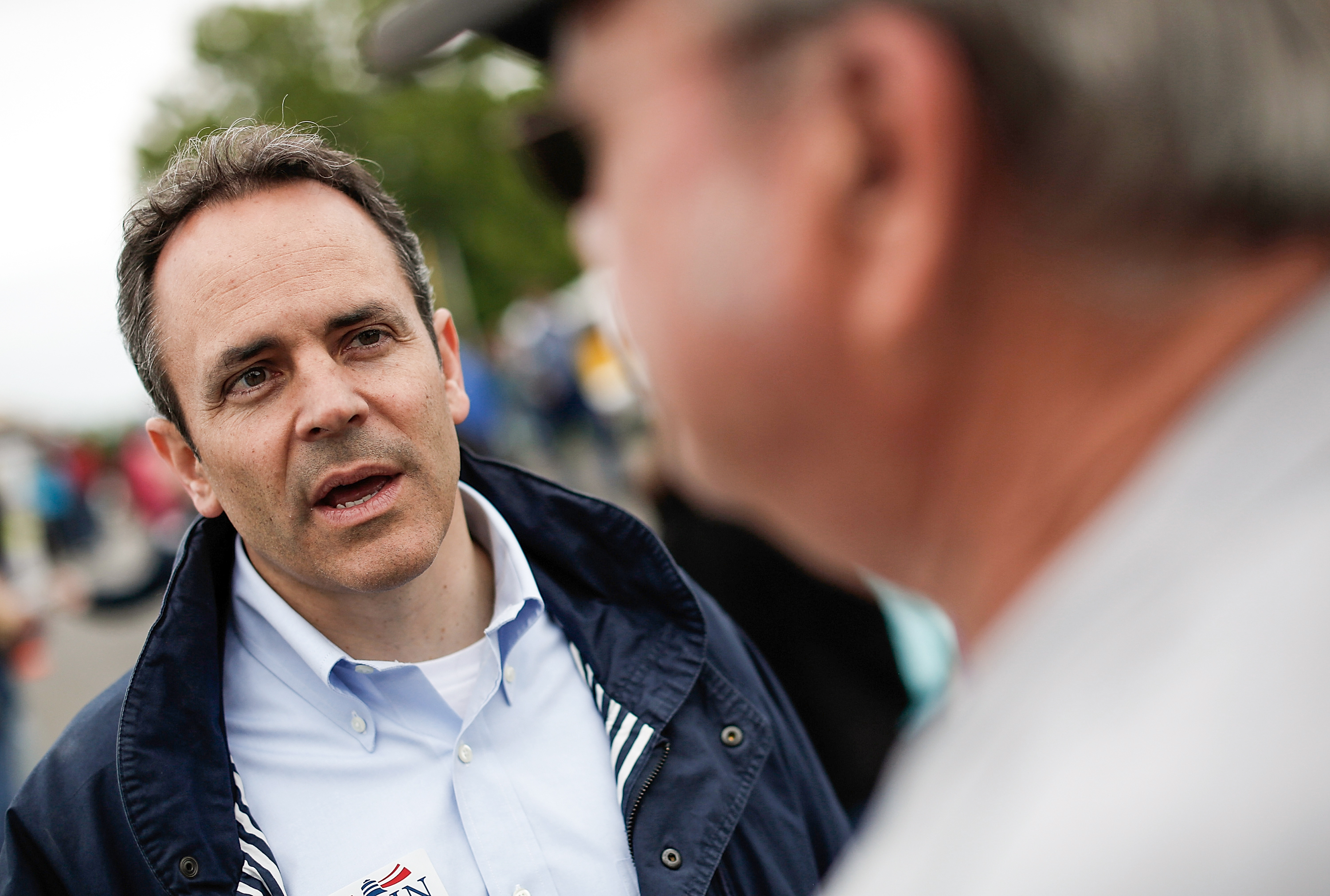How many Kentuckians will die if Matt Bevin snatches away ObamaCare?
Probably hundreds — but please, let's never find out for sure


On Tuesday, Tea Party Republican Matt Bevin roundly defeated Democrat Jack Conway for the governorship of Kentucky. The health insurance of about 400,000 people now hangs on what he'll do next.
Here's why. Kentucky is conservative, but current Democratic Gov. Steve Beshear (who was term-limited out) made implementing ObamaCare his number one priority. As a result, Kentucky had probably the best rollout of the law in the entire country — all the more laudable given how desperately poor Kentuckians needed the coverage.
Overall, the Kentucky uninsurance rate dropped by over 11 percentage points by early 2015.
The Week
Escape your echo chamber. Get the facts behind the news, plus analysis from multiple perspectives.

Sign up for The Week's Free Newsletters
From our morning news briefing to a weekly Good News Newsletter, get the best of The Week delivered directly to your inbox.
From our morning news briefing to a weekly Good News Newsletter, get the best of The Week delivered directly to your inbox.
Nevertheless, Bevin promised during the campaign that he would reject the Medicaid expansion and dismantle the state's ObamaCare exchange, called Kynect — though he later claimed nobody would be "kicked to the curb." Torching Kynect (which incidentally means flushing something like $200 million in government money down the toilet) would theoretically still let people find insurance on the federal exchange, but should he rescind the Medicaid expansion, roughly 400,000 people will lose coverage immediately.
How many would die? I have previously calculated the excess death rate due to lack of coverage at 0.0005 to 0.0009 per year. That means between 200 and 360 deaths, every year. It's not hard to believe, either — under ObamaCare, common preventative care is up in Kentucky between 88 and 187 percent.
Just a few days ago there was a massive study about how poor white Americans, basically alone among demographic groups in the developed world, are experiencing increasing mortality. Conservative Republicans' desperate efforts to keep them from getting insurance are a big reason why.
At any rate, there are several things to note here.
A free daily email with the biggest news stories of the day – and the best features from TheWeek.com
One is how Democrats are still absolutely terrible at off-year, down-ballot elections: Turnout in Kentucky was a measly 31 percent. On the one hand, this speaks to Democrats' generally weak state-level organization (though as Greg Sargent points out, they are working feverishly on it), but on the other, it demonstrates how utterly senseless it is to have elections on weird off-year dates. Turnout is higher during presidential elections and lower during midterms — and lower still on off years. The lower the turnout, the older and whiter — and hence more conservative — the electorate.
A second thing is simply how much headache the byzantine and decentralized structure of ObamaCare is causing. America's vaunted "federalism" generally means giving conservative states an opportunity to harm their own citizenry. If Congress had simply removed Medicaid from state budgets and control, and then expanded it, we wouldn't be having this discussion.
However, it's not clear that Bevin will actually have the nerve to snatch coverage from hundreds of thousands of vulnerable people and cause hundreds of pointless deaths. He might instead throw people onto the federal exchange, which now works pretty well, and seek a waiver from the government allowing a quasi-private Medicaid expansion, which has worked okay in Arkansas and Indiana.
This would have the handy property of assuaging the hospital and insurance industry, which has been totally overhauled to accommodate ObamaCare. The law contains many provider cuts in other federal programs, which are meant to be compensated by increased coverage. The Medicaid expansion put $506 million into the pockets of Kentucky hospitals in 2014; getting rid of it would leave them with the cuts only.
Rejecting the law from the outset has been devastating to Mississippi's medical sector, but it will be orders of magnitude worse for a place that has already been rebuilt around massive federal insurance subsidies. Extremely rich and powerful Kentuckians are likely screaming into the phone at Republican operatives right now, demanding that the federal gravy train keep flowing.
Governor-elect Bevin might also look at the rock-bottom popularity of Kansas Gov. Sam Brownback, who obliterated his state's budget with a lot of supply-side tax derp. With the help of a tsunami of outside money, he managed to squeak through to reelection in 2014, but he now sits at 18 percent approval. Governor-elect Bevin ought to give that a thought before he goes about disemboweling his state's insurance coverage.
Ryan Cooper is a national correspondent at TheWeek.com. His work has appeared in the Washington Monthly, The New Republic, and the Washington Post.
-
 A running list of the US government figures Donald Trump has pardoned
A running list of the US government figures Donald Trump has pardonedin depth Clearing the slate for his favorite elected officials
-
 Ski town strikers fight rising cost of living
Ski town strikers fight rising cost of livingThe Explainer Telluride is the latest ski resort experiencing an instructor strike
-
 ‘Space is one of the few areas of bipartisan agreement in Washington’
‘Space is one of the few areas of bipartisan agreement in Washington’Instant Opinion Opinion, comment and editorials of the day
